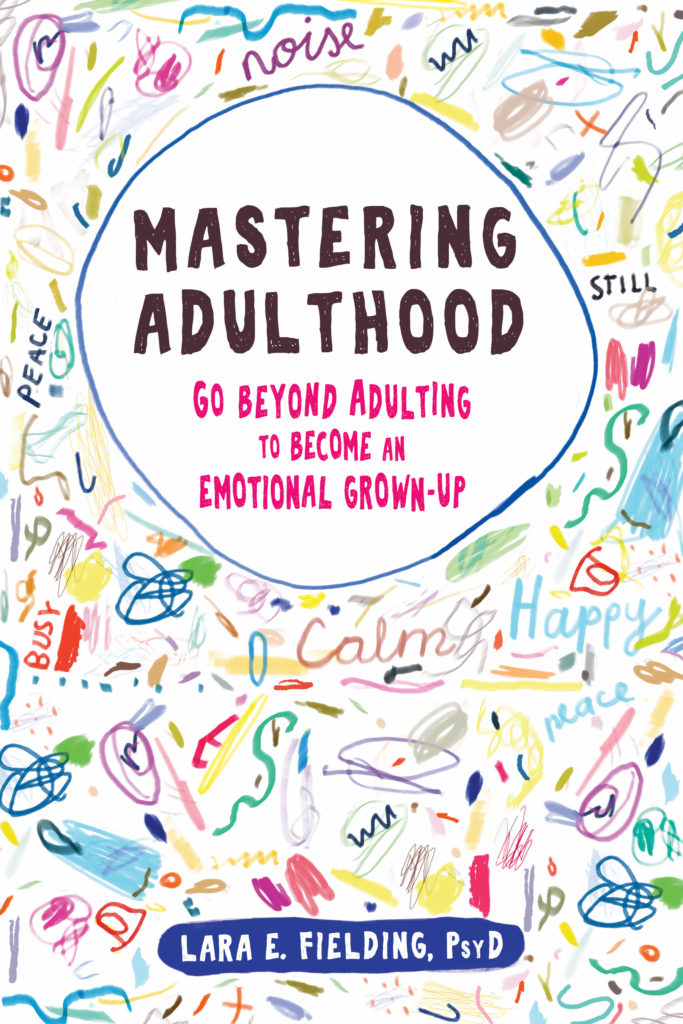There’s an old joke that asks, ‘How are house guests and fish alike?” (wait a beat)…
“Both go bad after three days.”
This relationship effectiveness skill will help prevent your close relationships from going stale during the quarantine.
Old jokes stick around, because they ring true. And whether you’re in lock down with yourself, or your family, the stench may be getting offensive by now.
Even in the best of conditions, during prolonged periods of confinement relationships can turn sour. That thing your mom does, that you normally brush off, becomes infuriating. The way your husband or boyfriend lets out a hearty guttural laugh while watching TV, which used to be sorta endearing…. Makes the hair on the back of your neck stand up now.
So, it stands to reason that we all could benefit from a bit of relationship preservative to prevent the odiferous outcomes from the lockdown.
Relationship Trauma in Times of Pandemic
Research has shown in the past how crises such as the one we are currently experiencing impact families and mental health. Following the Ebola crises in Africa a few years ago, domestic violence and child abuse cases spiked, and continue to be elevated (Szabo, et al., In Press). In China, the divorce rate soared following the quarantines there.
Currently, domestic violence reports have been skyrocketing worldwide. Not unexpectedly, large-scale surveys also show widespread concern about the effects of Covid on wellbeing, anxiety, depression, stress and overall negative feelings.
So, it’s highly likely that you are, or soon will be, feeling some strain on your relationships too.
Relationship Effectiveness: The Skill that Keeps on Giving.
Healthy stable relationships are the cornerstone of our well being and mental health. But, some of us, myself included, were not raised with even a clue about how to take care of them.
To make things even more challenging, relationship skills are far from intuitive. During the Covid quarantine, whether you are alone, or with family, we are all forced to be more skillful in our relationships (with others, and ourselves). The investment you make in learning and practicing this skill will pay off heart felt dividends later.
What is Relationship Effectiveness?
Relationship Effectiveness means doing just what is needed to support the health of the relationship. That means finding a place where, even if everyone cannot get their needs met perfectly, a synthesis of needs can be found. Relationship effectiveness promotes the strength and longevity of important relationships in our lives.
At the same time, relationship strain will build if we only focus on keeping the peace. So, relationship health can only be maintained if we also know when and how to assert our own needs. Objectives Effectiveness means getting good at asking for what you need and/or saying no in a clear and compassionate way.
Deciding When to Assert
Have you ever found yourself wondering, “Hmm, should I push on this? Or let it go?” Well, if you haven’t, it might be time you do! Some of us are over asserters. (Guilty here.). Us over asserters are task oriented. We tend to run full steam ahead to accomplish our mission. Often times, loosing sight of the current needs of the other person.
Some of us are under asserters. Under asserters tend to focus more on the strength of the relationship at any given moment. If this sounds like you, you’re the one who doesn’t want to make waves, or interrupt, and may tend to ‘over offer’. But then, over time, you might find yourself frustrated.
You may even loose your cool from time to time – thus reverting to even more over offering and relationship repairing. Sound familiar?
The Practice:
Next time you have to decide, ‘should I or shouldn’t I’ ask for something you need from someone in your household, PAUSE… and go through the following factors to consider.
Have a request? Count up how many questions on the left you answer yes to. The more you do, the more strongly you may assert.
Want to say no? Count up how many questions on the right you answer ‘no’ to. The more you do, the more firmly you may decline.
Table 1. Choosing Whose Discomfort: Factors to Consider
| When to Ask or Say No | When to NOT Ask or Say Yes |
| The person is capable of the request. | The person is not capable of the request. |
| You have more authority, or the request is appropriate to the relationship. | You have less authority, or the request is not appropriate to the relationship. |
| You are generally a giver in the relationship and tend to do things for yourself. | You have asked a lot or said no often in the relationship. |
| The relationship is strong and loving. | The relationship is tenuous. |
| The timing is good (person is not stressed at the time). | The timing is bad (person is stressed). |
| The outcome is important to your goals and values. | The outcome is not so important to your goals and values. |
Knowing Your Needs
As we enter yet another week of either forced closeness or isolation, we are all likely to be faced with a disturbing awareness. You may not actually know what it is you need to feel more in tune in your relationships, and with yourself.
Sometimes the need we have is simply to be seen and/or heard. Sometimes the ask from our partners, parents, or even ourselves, is simply to spend some un-distracted time together, being heard, and reflected back.
For many, if not most, of us, in the absence of our usual distractions, we are brought face to face with an unattended part of ourselves: A part of us that tells us what it is we care about, and thus, what it is we need. It’s the job of the grown up part of you to start listening to that authentic voice.
Wanna learn the step by step process for how to find your spark, and the skills you need to keep moving forward, I hope you’ll check out Mastering Adulthood: Go Beyond Adulting to Become and Emotional Grownup ! Just released on Audiobook!
To get even more helpful skills for Mastering Adulthood, sign up for the Mindful-Mastery SKILL WEEKLY newsletter (and get a FREE sample chapter from the audiobook), or follow me on Facebook, Twitter, or Instagram. Or YouTube for skills videos!


